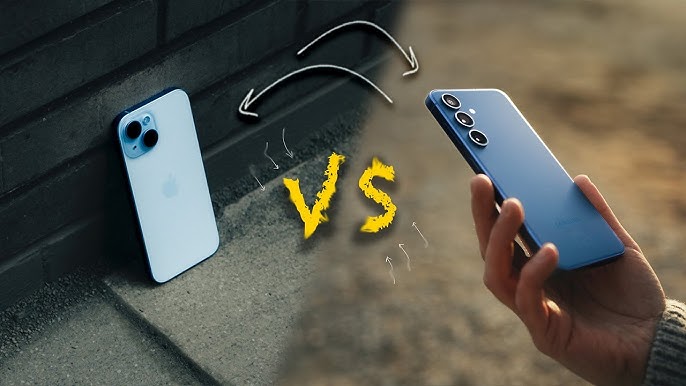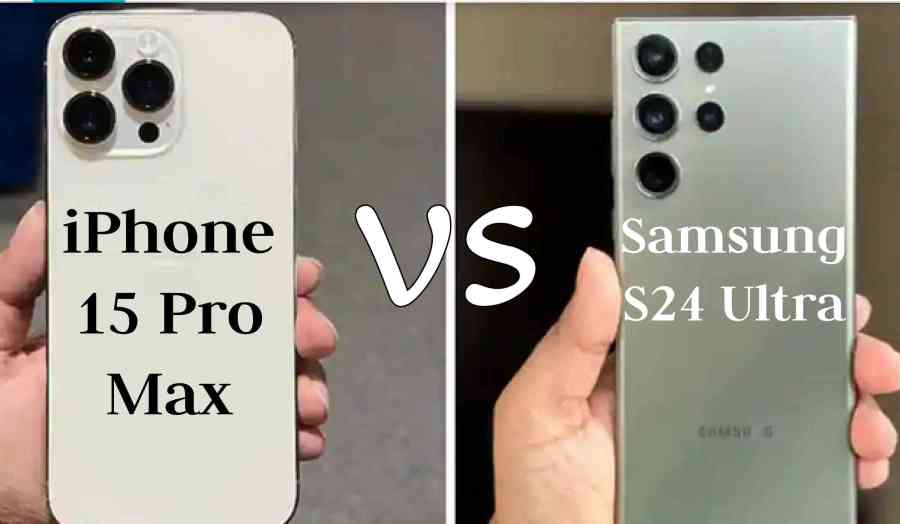When it comes to mobile technology, the big question always arises: Who is better, iPhone or Samsung?. As a writer for MundoVirtual and a technology analyst recognized . I can’t help but notice how this topic continues to generate passionate debates. The comparison between iOS and Android is more than just a choice of operating system; it’s a decision that affects how we interact with the digital world daily. In this article, we will break down every detail, from network configuration, internet speed, connectivity capacity, to integration within tech ecosystems like tablets, headphones, watches, and computers. Let’s discover together who truly takes the lead!

iPhone vs. Samsung: A Clash of Titans
First, let’s talk about the user experience. The iPhone, with its iOS operating system, offers a clean, intuitive, and easy-to-navigate interface. Since its inception, Apple has maintained a closed approach to its ecosystem, ensuring that every component, from hardware to software, works in perfect harmony. This not only ensures optimal performance but also greater security.
On the other hand, Samsung uses Android, an open-source operating system that allows for much broader customization. For some, this is an advantage: you can tweak virtually any aspect of your device. However, this flexibility can be a double-edged sword, as compatibility with different devices is not always ideal, which can lead to inconsistencies in performance.
| Features | iPhone (iOS) | Samsung (Android) |
|---|---|---|
| Ease of Use | Simple and intuitive interface | Customizable but more complex |
| Updates | Regular and simultaneous | Fragmented by manufacturer |
| Security | Closed system, less vulnerable | Open system, more susceptible |
| Ecosystem Integration | Excellent with other Apple devices | Good, but depends on the manufacturer |
| Customization | Limited but optimized | Extensive customization |
Internet Speed and Connectivity Capability
Another key area where these two giants compete is in internet speed and connectivity capability. iPhones have consistently demonstrated better integration of their hardware with software, resulting in a faster and more stable connection. Apple has optimized its hardware to work perfectly with its proprietary chips, allowing for data management efficiency that many Android phones, even high-end ones like Samsung, cannot match.
In contrast, Samsung offers devices that support the latest connectivity technologies, such as 5G, but the experience can vary significantly depending on the model and software optimization performed by the manufacturer on Android.
| Aspect | iPhone (iOS) | Samsung (Android) |
|---|---|---|
| Internet Speed | Consistent and fast | Variable depending on the device |
| Connectivity Capability | Excellent with Apple products | Good with Samsung devices |
| Optimization | High (integrated hardware and software) | Medium (depends on the model) |

Why is iPhone Better than Samsung?
Here are five compelling reasons why the iPhone might surpass Samsung:
- Simultaneous Software Updates: All iPhones receive updates simultaneously, ensuring security and access to new features—something Android users often don’t experience due to system fragmentation.
- Integrated Ecosystem: If you have other Apple devices like a Mac, iPad, or Apple Watch, the integration is nearly seamless, offering a continuous experience.
- Consistent Performance: Thanks to hardware and software optimization, iPhones maintain smooth performance even after years of use.
- Less Susceptibility to Viruses: iOS is a closed system, making it less vulnerable to malware and viruses compared to Android.
- Build Quality: iPhones are known for their superior build quality and high-end materials.
Why is Android (Samsung) Preferred by Some?
Although many users prefer the iPhone, Android also has its strengths that attract a large user base:
- Greater Customization: Android allows a level of customization that iOS does not offer. From the interface to default apps, control is in the user’s hands.
- Diversity of Devices: With Android, you have access to a wide variety of devices from different manufacturers, allowing you to choose the one that best suits your needs and budget.
- Google Integration: For users deeply immersed in the Google ecosystem, Android offers superior integration with services like Google Assistant, Google Photos, and more.
- Better Value for Money: Android devices often offer more features at a lower price compared to the iPhone.
- Storage Expansion: Many Android devices allow storage expansion with microSD cards, something iPhones do not allow.

So, Why Does iPhone Outperform Android in Sales and Profitability?
Despite Android’s advantages, the iPhone continues to lead in sales, profitability, and quality. Apple has created a closed ecosystem that works perfectly, and customer loyalty to the brand is unmatched. The quality of materials, innovative design, and the perception of security and privacy that Apple offers are key factors that drive consumers to choose iPhone repeatedly.
Moreover, Apple’s strategic marketing and its ability to create a unique user experience keep customers coming back. Did you know that the iPhone continues to be one of the best-selling products year after year, not only for its technical features but also for its status as a symbol of style and technology?
| Reasons to Choose | iPhone | Android (Samsung) |
|---|---|---|
| Advantages | Integration, quality, security | Customization, variety, price |
| Disadvantages | High price, less customization | Fragmentation, variable security |
| User Preference | Quality, stability, ecosystem | Flexibility, options, Google |
User Opinions and the Vision from MundoVirtual
Users tend to be divided into two camps: those who prefer the stability and security of the iPhone and those who value the flexibility and customization of Android. At MundoVirtual, we recognize the importance of both platforms and understand that the choice comes down to the individual user’s needs and preferences.
“Keep watching on MundoVirtual”
- Televisor viejo, cerebro nuevo: el salto de Amazon que te va a cambiar el salón.

- Demasiado rápido para llamarlo tablet: iPad Pro M5

- “Silencio que retumba”: mi veredicto sin rodeos sobre los AirPods Pro 3

- Apaga la pantalla: la jugada de OpenAI que quiere mudarse a tu sala

- Alerta de bolsillo: tu casa está en juego (y no es un simulacro)

- Te va a tentar: MacBook Pro 2026 y las 5 jugadas que podrían redefinir el portátil de Apple.

From our perspective, we believe that both iOS and Android have a lot to offer. However, Apple’s ability to create a more cohesive and intuitive user experience gives it a slight edge in terms of quality and customer satisfaction. That said, we cannot overlook the incredible flexibility and value for money that Android offers its users.
So, what do you think? **Do you prefer the integration and security of iOS or the customization




